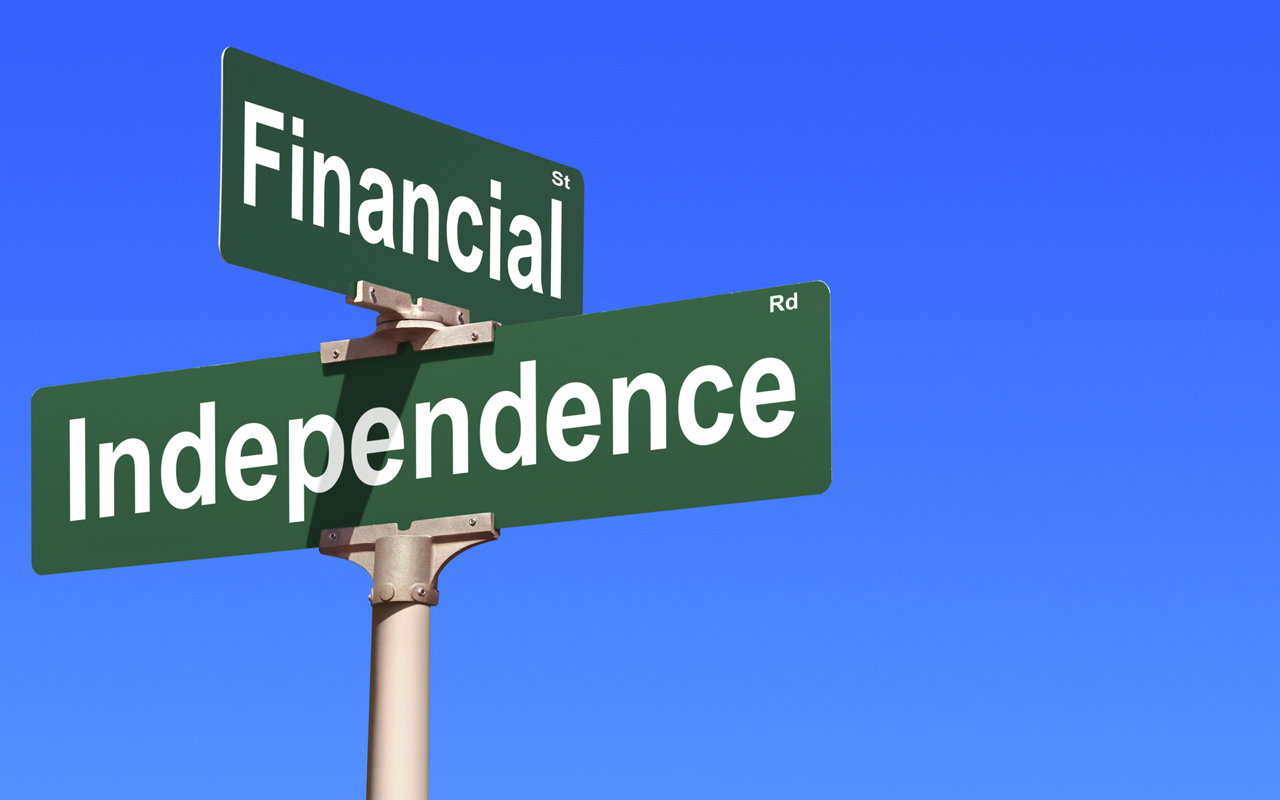Is Your Financial Adviser Truly Independent?
Even if the firm you’re working with uses the word “independent” in its name, you need to dig deeper to make sure your adviser is putting your best interests first.


Profit and prosper with the best of Kiplinger's advice on investing, taxes, retirement, personal finance and much more. Delivered daily. Enter your email in the box and click Sign Me Up.
You are now subscribed
Your newsletter sign-up was successful
Want to add more newsletters?

Delivered daily
Kiplinger Today
Profit and prosper with the best of Kiplinger's advice on investing, taxes, retirement, personal finance and much more delivered daily. Smart money moves start here.

Sent five days a week
Kiplinger A Step Ahead
Get practical help to make better financial decisions in your everyday life, from spending to savings on top deals.

Delivered daily
Kiplinger Closing Bell
Get today's biggest financial and investing headlines delivered to your inbox every day the U.S. stock market is open.

Sent twice a week
Kiplinger Adviser Intel
Financial pros across the country share best practices and fresh tactics to preserve and grow your wealth.

Delivered weekly
Kiplinger Tax Tips
Trim your federal and state tax bills with practical tax-planning and tax-cutting strategies.

Sent twice a week
Kiplinger Retirement Tips
Your twice-a-week guide to planning and enjoying a financially secure and richly rewarding retirement

Sent bimonthly.
Kiplinger Adviser Angle
Insights for advisers, wealth managers and other financial professionals.

Sent twice a week
Kiplinger Investing Weekly
Your twice-a-week roundup of promising stocks, funds, companies and industries you should consider, ones you should avoid, and why.

Sent weekly for six weeks
Kiplinger Invest for Retirement
Your step-by-step six-part series on how to invest for retirement, from devising a successful strategy to exactly which investments to choose.
If you were buying a home, you probably wouldn’t want a Realtor who showed you only the houses listed by his company. Pretty soon you’d find yourself asking, “What about this place with the pool? Or this one with the walk-in closet? That’s what I really want.” And if he couldn’t accommodate you, you’d quickly find someone who could.
It wouldn’t matter if he was nice. Or if he worked for a well-known real estate firm. You’d want him to find homes that fit your needs and price range, and to give you as many options as possible.
I often wonder why people aren’t as demanding about their investment choices.
From just $107.88 $24.99 for Kiplinger Personal Finance
Become a smarter, better informed investor. Subscribe from just $107.88 $24.99, plus get up to 4 Special Issues

Sign up for Kiplinger’s Free Newsletters
Profit and prosper with the best of expert advice on investing, taxes, retirement, personal finance and more - straight to your e-mail.
Profit and prosper with the best of expert advice - straight to your e-mail.
Are You Working with a ‘Captive’ Adviser?
I understand that folks feel secure when they go with brand-name broker-dealers — the ones that have quality TV commercials, tall buildings downtown, perhaps even their name on a stadium. And I’m sure some investors just feel more at home at their local bank, or they like the convenience of using the financial services offered there.
It’s possible most aren’t even aware the person they’re working with at the bank or the big brokerage company is what’s known as a “captive” adviser — a financial professional who is a registered representative of the firm for which he works, and who typically can recommend only the products offered by that firm or those that they allow on their platform. Which means the things he suggests will be suitable for his clients’ needs, but not necessarily the best possible options, because he simply might not have access to the best solution.
He might tell you what he’s selling is superior — but, of course, he’s a bit biased. The licensing a captive adviser works under doesn’t require the more stringent fiduciary standard, which says the adviser must act solely in the client’s best interests. A captive adviser may have good intentions — but he also has limitations. If he can’t give you what you want, he’ll give you what he has. After all, he still has to make a living.
A Better Way to Go
Which is why a major shift is going on in the industry toward truly independent advisory practices.
Independent advisers offer investment products from a number of companies. They don’t get a bonus or a corner office based on revenue-sharing quotas. And they don’t limit their recommendations or suggest strategies based on a list of products built by their bosses; they look at everything available to determine the best fit for the client. That’s where their loyalty lies.
I know it can be difficult to tell the difference between these types of firms and their advisers. It always has been — and the jumble of letters we put behind our names (CFP, CFA, CFS, etc.) doesn’t mean much to anyone outside the industry. It also doesn’t tell you whether you’re working with an independent adviser, who has your best interests in mind.
The push for better disclosure statements and to make the fiduciary obligation to clients an industry standard has, unfortunately, muddied the waters even more. Firms that use the word “independent” in their name or on their marketing materials are not always completely self-contained. In many instances, they are “independent” practices of another firm. Think of it like owning a McDonald’s franchise: You still have to sell burgers even if your customers want sushi; however, you are an “independent” franchise.
Of course, the most important thing is to find an adviser you trust. Some important factors to keep in mind:
- Do you feel confident that he is looking out for your best interests?
- Does he have a passion for the work?
- Is he persistent?
- Do you get along?
- Does he answer the phone and your emails?
The Question You Always Want to Ask: Why
But your adviser also should be capable of explaining why he picked a particular fund or strategy and whether there was a commission involved or some other motivation for the choice.
Open your statements and look past the bottom line. Read the fine print on disclosures. Ask what licenses your adviser holds and whether he and/or the firm is an independent Registered Investment Adviser, registered with the either the Securities or Exchange Commission (SEC) or state securities authorities.
Finding the right products and strategies to build your nest egg is obviously crucial to your financial success. But hiring the right person to help you make those decisions — with the most choices and the fewest conflicts — is every bit as important.
Kim Franke-Folstad contributed to this article.
Profit and prosper with the best of Kiplinger's advice on investing, taxes, retirement, personal finance and much more. Delivered daily. Enter your email in the box and click Sign Me Up.

Casey B. Weade is president of Howard Bailey Financial Inc. in Indiana and author of the book "The Purpose-Based Retirement." Weade, a financial professional, hosts The Purpose-Based Retirement radio and TV shows in the Fort Wayne area. He earned the prestigious Certified Financial Planner™ (CFP®) certification in addition to being a Retirement Income Certified Professional® (RICP®). He is also an Investment Adviser Representative (IAR), as well as life, accident and health insurance licensed and Long-Term Care Certified.
-
 Dow Adds 1,206 Points to Top 50,000: Stock Market Today
Dow Adds 1,206 Points to Top 50,000: Stock Market TodayThe S&P 500 and Nasdaq also had strong finishes to a volatile week, with beaten-down tech stocks outperforming.
-
 Ask the Tax Editor: Federal Income Tax Deductions
Ask the Tax Editor: Federal Income Tax DeductionsAsk the Editor In this week's Ask the Editor Q&A, Joy Taylor answers questions on federal income tax deductions
-
 States With No-Fault Car Insurance Laws (and How No-Fault Car Insurance Works)
States With No-Fault Car Insurance Laws (and How No-Fault Car Insurance Works)A breakdown of the confusing rules around no-fault car insurance in every state where it exists.
-
 For the 2% Club, the Guardrails Approach and the 4% Rule Do Not Work: Here's What Works Instead
For the 2% Club, the Guardrails Approach and the 4% Rule Do Not Work: Here's What Works InsteadFor retirees with a pension, traditional withdrawal rules could be too restrictive. You need a tailored income plan that is much more flexible and realistic.
-
 Retiring Next Year? Now Is the Time to Start Designing What Your Retirement Will Look Like
Retiring Next Year? Now Is the Time to Start Designing What Your Retirement Will Look LikeThis is when you should be shifting your focus from growing your portfolio to designing an income and tax strategy that aligns your resources with your purpose.
-
 I'm a Financial Planner: This Layered Approach for Your Retirement Money Can Help Lower Your Stress
I'm a Financial Planner: This Layered Approach for Your Retirement Money Can Help Lower Your StressTo be confident about retirement, consider building a safety net by dividing assets into distinct layers and establishing a regular review process. Here's how.
-
 The 4 Estate Planning Documents Every High-Net-Worth Family Needs (Not Just a Will)
The 4 Estate Planning Documents Every High-Net-Worth Family Needs (Not Just a Will)The key to successful estate planning for HNW families isn't just drafting these four documents, but ensuring they're current and immediately accessible.
-
 Love and Legacy: What Couples Rarely Talk About (But Should)
Love and Legacy: What Couples Rarely Talk About (But Should)Couples who talk openly about finances, including estate planning, are more likely to head into retirement joyfully. How can you get the conversation going?
-
 How to Get the Fair Value for Your Shares When You Are in the Minority Vote on a Sale of Substantially All Corporate Assets
How to Get the Fair Value for Your Shares When You Are in the Minority Vote on a Sale of Substantially All Corporate AssetsWhen a sale of substantially all corporate assets is approved by majority vote, shareholders on the losing side of the vote should understand their rights.
-
 How to Add a Pet Trust to Your Estate Plan: Don't Leave Your Best Friend to Chance
How to Add a Pet Trust to Your Estate Plan: Don't Leave Your Best Friend to ChanceAdding a pet trust to your estate plan can ensure your pets are properly looked after when you're no longer able to care for them. This is how to go about it.
-
 Want to Avoid Leaving Chaos in Your Wake? Don't Leave Behind an Outdated Estate Plan
Want to Avoid Leaving Chaos in Your Wake? Don't Leave Behind an Outdated Estate PlanAn outdated or incomplete estate plan could cause confusion for those handling your affairs at a difficult time. This guide highlights what to update and when.